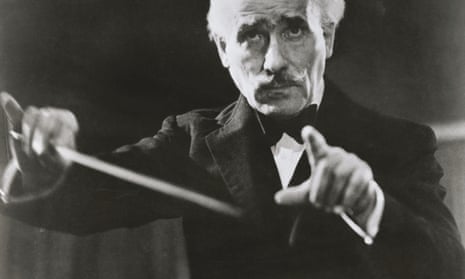The season has come to an end at the Scala of Milan with a performance of that hardy perennial Aida, and the conclusion brought an enormous crowd to the famous house. Rumours have been busy for some time with the possibility of losing Toscanini as conductor, and this in part accounted for the remarkable ovation paid to him.
He did his best to avoid it by refusing to appear with the artists before the curtain. However, that helped him nothing, for the audience was not to be denied; and they took the opportunity of his return to the conductor’s desk before the opening of the last act to make an overwhelming demonstration that was by no means checked by his raising the baton to begin. He then gave in with a good grace, standing with a smiling face and bowing repeatedly.
There were nine novelties in the course of the season. Of these The King (Il Re) by Giordano, Tsar Saltan by Rimsky-Korsakoff, and The Sunken Bell (La Campana Sommersa) by Respighi (already produced in Hamburg but new to Italy) were amongst the most popular. Illness of the tenor, Signor d’Alessio, prevented the eagerly awaited production of Don Giovanni under Toscanini’s baton; let us hope it is only a pleasure postponed.
Hardly was the curtain down for the last time than an army of workmen were already shouldering pieces of the scenery to convey into the courtyard for packing. The gigantic enterprise of moving a personnel of 350 and material weighing 519 tons went forward with that trained discipline for which the Scala is famous. The properties for Lucia di Lammermoor and Falstaff had already been dispatched. Rigoletto, Trovatore, and Puccini’s Manon were awaiting their turn.
It is possible that this historic tournee to Berlin and Vienna is to be regarded in the light of the overture before the curtain rises on a new treaty between former enemies. Toscanini in the role of an angel of peace is a new conception.

Comments (…)
Sign in or create your Guardian account to join the discussion